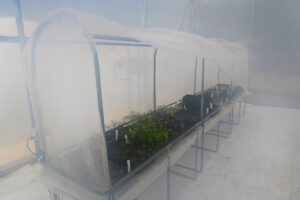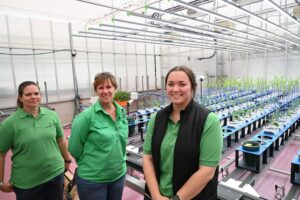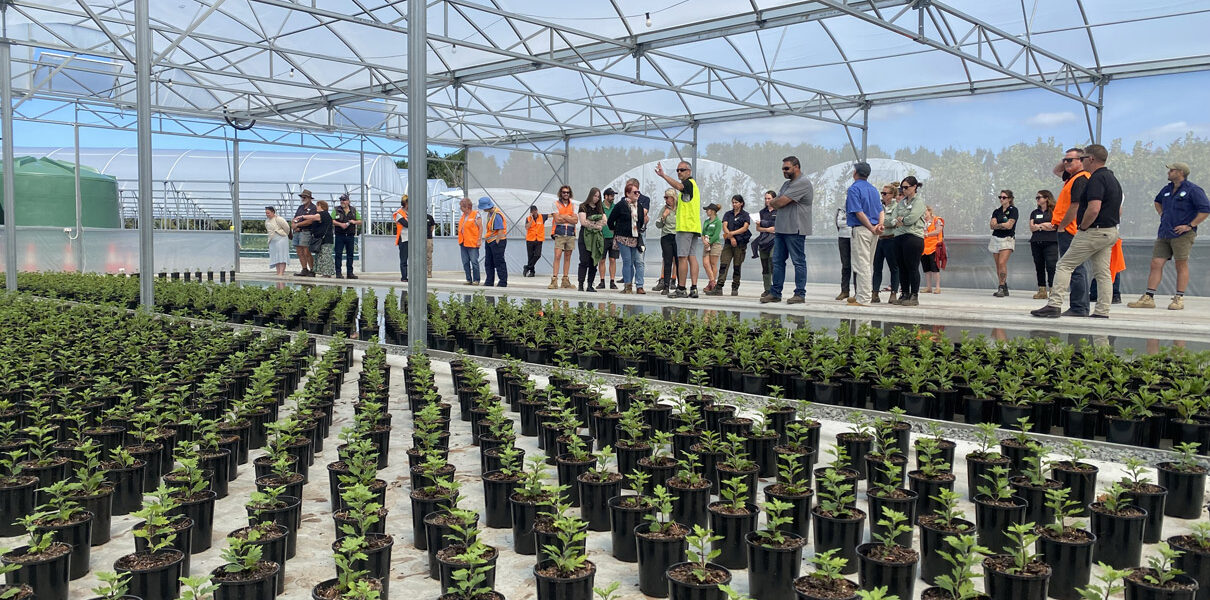Celebrating 50 years of IPPS
By Dan Austin
Seeking and sharing knowledge of plant production is the core principle of the International Plant Propagators’ Society (IPPS). In recent months, this ethos has been showcased like never before as members across the country opened their doors to present propagation at its best through a series of regional meetings in celebration of fifty successful years of the society.
The regional functions kicked off in Western Australia at the recently constructed Natural Area Nursery in Whiteman Park. At this event, Natural Area founder David Hancock provided some background to the business which specialises in native plant propagation. The nursery’s stock list consists of more than 450 species, many of which are considered notoriously difficult to propagate. Attendees were treated to examples of the propagation techniques used to achieve success with these challenging species, and were provided with a behind-the-scenes tour of the nursery’s impressive facilities.

Westland Nurseries at Seven Mile Beach in Tasmania were next to open their doors, when, in February, long-standing IPPS member Tony VanderStaay hosted a fiftieth anniversary networking day. Over 130 people converged at the nursery for the event, which attracted TasTAFE students, lecturers, IPPS members, and a myriad of affiliated industry representatives. In addition to lunch and a nursery tour, attendees were treated to presentations by various guest speakers, including media personality and plant breeder Angus Stewart who spoke on breeding native plants to suit home gardens. The presentation included some spectacular samples of Anigozanthos spp. among other botanical gems. Chris Sargent, managing director of Plant Management Australia, also spoke on the business of promoting plants developed by breeders around the world, and finding the corresponding markets to which they are suited.
I had the pleasure of working with South Australian IPPS members to continue the celebrations in April and host a meet, greet, and tour event in the state’s Waite horticultural precinct. Despite the event unknowingly clashing with the Melbourne International Flower and Garden Show, the South Australian IPPS event was booked out. Again, attendees came from diverse backgrounds and included TAFESA and university students, lecturers, researchers, nursery operators, and NGISA members, along with other industry affiliates. To provide maximum benefits at the one event, attendees were able to network over a barbeque breakfast before a series of breakout sessions allowed for a choice of speakers, covering topics that included tissue culture, new developments in integrated pest management, and insights into the IPPS South African Exchange program.

The cohort then got mobile, undertaking a tour of a newly-built propagation facility at TAFESA’s Urrbrae Campus. The facility was nearly two years in the making and encompasses an impressive array of automated climate control features including fog cooling, automated gull-wing ventilation, and energy screens, housed within an inflated dual-skinned structure. Attendees then continued on to be given guided tours of the nearby Waite Arboretum facilitated by the Friends of the Waite Arboretum. A tour of the Australian Plant Phenomics Facility’s one-of-a-kind Plant Accelerator Greenhouse concluded the event, where participants were able to observe research trials into various crops from wheat to industrial hemp.
While these regional meetings have celebrated fifty years of the IPPS, and it is a fantastic milestone, it is not the only reason these events are being held. A decision to increase the frequency of such events to benefit IPPS members has been made by the Society, and as such you may well have the opportunity to attend one near you sometime in the future. By all accounts, it has been a great decision, with glowing feedback illustrating that attendees have walked away as better propagators from their experiences.
Regional meetings provide members the chance to stay connected, and ‘seek and share’ plant production knowledge between the now well-renowned IPPS annual conferences, the latest of which is being held in Geelong as this article goes to print.
As the summary of the attendees outlined earlier illustrates, whether attending a regional event or an annual conference, one of the most valuable aspects of the IPPS is the diversity of its membership. Once predominantly made up of nursery operators, the Society has evolved over the years with individuals from an increasing variety of professions realising the value of membership.
Whether you are out there propagating plants or putting them in the ground, breeding a new variety or culturing one in agar, broadacre cropping or farming under glass, lecturing to students or still a student yourself – there has never been a better time to join the International Plant Propagators’ Society.
Main photo: Westland Nurseries Open Day at Seven Mile Beach, Tasmania (Image: IPPS)

